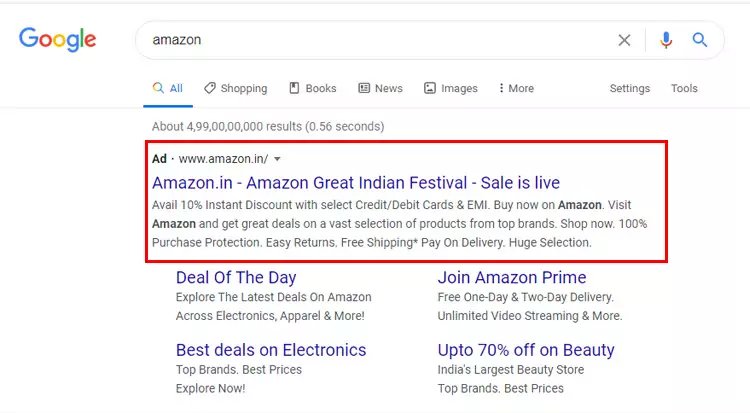

What is PPC (pay-per-click)?
PPC stands for “pay-per-click”. This can be a type of promoting through which you set the price range of your advertisements on a given platform, equivalent to Google or Facebook, after which only pay for the clicks you receive. There are a number of similar types of promoting, such as pay-per-impression or pay per view; all of those work on the premise that you simply pay only when the supposed interaction—views, clicks, or impressions happen.
PPC (pay-per-click) advertising can play an important role in your online business’s broader online advertising marketing campaign. It may be particularly helpful for specialized, time-sensitive campaigns, to directly address competitors, or to interrupt into new geographic markets. However, PPC (pay-per-click) advertising will be far too costly, time-consuming and non-permanent, if used as the only real method, to your online advertising presence. As an alternative, it should be used within the context of a method that includes strong analytics, Search Engine Optimization (SEO).
In pay-per-click promoting, companies running ads are solely charged when a person really clicks on their advert, therefore the name PPC “pay-per-click”

How Does PPC (pay-per-click) Work?
With regards to PPC (pay-per-click), there are 3 most important parties. Advertisers, the middleman (or PPC Network) and publishers.
Advertisers: Advertisers are companies or individuals who use PPC (pay-per-click) with the intention to promote their services.
Publishers: Publishers are individuals who team up with PPC networks with the intention to earn income from displaying their adverts. Almost all publishers own some website which they can show adverts on.
They pay the PPC network, (Google Adverts, Bing Adverts, Fb Adverts) to show their adverts on their website.
At any time when a visitor clicks on their advert, they charge money by the network. That is the place the term “PPC” came from. Now, depending on the key phrase(Keyword) and competition, this will decide how much they pay-per-click.
What is Google Ads?
In a PPC (pay-per-click) marketing campaign, you pay Google however a lot you need them list adverts for your website on the top and right of the organic search listings. When somebody clicks on your advert, you pay the current Cost Per Click on (CPC) from your budget. As soon as your entire budget has been depleted, Google ceases to run your adverts till you replenish your fund. There are a number of various kinds of Google Adverts, including Search Adverts, Local Search Adverts, Display Adverts, and Remarketing.
While a variety of factors determine how successful your PPC promoting, the marketing campaign will be, you can achieve a lot by focusing on:
- PPC (pay-per-click) keyword
- Quality Score is Google’s rating
- Creating optimized landing pages
- Quality of content
What is Facebook Ads?
Similar to Google Ads (Google AdWords) and Bing Ads, Facebook utilizes an auction system to determine which adverts are shown to which users. Nevertheless, there are a few components that might be unique to Fb advertising, the primary of which is a concept known as competitive value.
The competitive value of a Fb advert is the sum of an advertiser’s maximum bid – how a lot an advertiser is willing to pay each time a user takes the desired action – and the advert’s intrinsic high-quality bid, or how a lot of engagement an advert brings to Fb and the user expertise. Though the precise methodology behind how Fb calculates intrinsic high-quality bid is a closely guarded secret, Fb does concede that components such as the number of clicks, likes, and shares are included in this calculation, as is normal suggestions on an advert.
What is Linkedin?
If your business is aimed directly at customers, Fb might be going to get you one of the best returns on your Social Advertising funding. Nonetheless, in case you’re in the B2B camp, it’s worth considering LinkedIn Advertising.
Managing Your PPC (pay-per-click) Campaigns
Once you have created your new campaigns, you’ll have to manage them frequently to ensure they continue to be effective. Actually, regular account activity is likely one of the greatest predictors of account success. You should be continuously analyzed the performance of your account and making the following changes to optimize your campaigns:
- Add Negative Keywords
- Add PPC (pay-per-click) Keywords
- Split your Ads
- Customize Landing Pages








